- Home
- Heather Graham
St. Patrick's Day Page 2
St. Patrick's Day Read online
Page 2
“’Leprechaun’?” Corby suggested.
“Sure. That sounds good for St. Patrick’s Day,” Mary said.
“No!” Angela said. “It’s a horror movie—and no!” she said to Corby.
“I was just teasing,” Corby assured her.
Mary shook her head, grinned, and headed for the stairs. “Night, all!”
“Goodnight, Mary, thank you!” Angela called.
When she was gone, Angela looked at Corby.
“Okay, what’s wrong?”
“There’s something at that cemetery,” he said.
Corby was ‘gifted.’ He was their adopted son, but she couldn’t have loved any child more. He was giving and sweet and she believed he would grow to be a man with an incredible sense of integrity.
“Something as in . . . ghosts, you mean? Corby, we all know this. Most of the time, ghosts like to hang out where they loved being in life; but they do come ‘home’ more or less because they meet others like themselves. But I didn’t see any ghosts today or this evening, and certainly not anyone or anything that might be dangerous.”
“But they think something might happen there.”
She hesitated, wondering if she had done the right thing. Mary had been taking care of the baby, but Corby had been with her when she’d stopped in the office for some paperwork and gotten the call about the strange writing on the stone.
She’d stopped by with him quickly before taking him home to be with Mary, and then returning to wait with the others until dark.
“Why do you say that?” she asked.
“He was watching me,” Corby said.
Angela frowned. Her arms tightened around his shoulders. She realized she might be an overprotective parent since nothing was threatening them in their living room.
“He—who? A visitor to the cemetery?”
“A strange man. In a very strange outfit.”
“You don’t mean a police uniform, do you?”
“No, no, he was . . . really weird. He was wearing like a dress . . . and a robe and a strange hat, and he was . . . just there. Then he wasn’t.”
Angela frowned. “A dress and a robe and a strange hat.”
“I think he was an old-time priest,” Corby said. He shrugged. “He looked nice, but weird. Not the bad kind of weird.” He gave her a grin. “I’m a smart kid—look at who I have for parents!”
“Flattery!” she warned him.
He was still grinning and shaking his head.
“Wait, the whole thing was weird. I knew he’d never hurt anyone. There was just something gentle about him . . . I don’t know. I—hey! Can I go back there with you tomorrow?”
“Do you think he was a priest? Maybe someone dressed for funeral rites?”
“Maybe.” He looked at her strangely. “I don’t think he was . . .”
“He was what?”
“Living,” Corby said. “Mom, they didn’t close the cemetery to the public, right?”
They hadn’t. The police and the bureau had chosen not to. They wanted to watch for anyone coming in.
“No.”
“May I just go with you for the donuts part of the day? Mom! It’s St. Patrick’s Day tomorrow! The luck of the Irish will be with you!”
“You know what they say sometimes, don’t you?” she asked him.
“What’s that?”
“If the Irish didn’t have bad luck, they’d have no luck at all!”
“Mom, do you know why the Irish wear shamrocks?”
“I actually do,” she told him. “St. Patrick was born in Britain; his father had been Romanized, but he was taken as a slave to Ireland. It was there he began teaching and preaching. And he used the shamrock to describe God the Father, God the Son, and God the Holy Ghost. Three in one.”
“Bummer.”
“What?”
Corby laughed. “Bummer. I wanted to tell you something!”
She grinned. “I have always loved St. Patrick’s Day. And so, I know a lot about St. Patrick!”
“Did you know that he wasn’t Irish?”
“Born in Britain.”
“He was taken by Irish raiders when he was sixteen.”
“And he spent six years as a slave,” Angela said, “and he was often lonely and afraid. His father had been with the Christian church, so Patrick turned to his religion in all his solitude. He had dreams and visions, and after he’d escaped, he walked to the shore and made his way back to Britain. He believed he needed to go back and bring his faith to the Irish people. But first, he studied for years and years—and years—and was then ordained as a priest. He was sent to Ireland then—to administer to the Irish who were Christians and to bring Christianity to those who weren’t.”
“Mom, you’re good. And annoying.”
Angela laughed. “I’m sorry!”
“He was smart—he didn’t try to convince people they were bad or wrong. They had their own religion based mainly on nature. So, he incorporated the sun with the cross. He had bonfires at Easter,” Corby said.
Angela nodded. “I’m very proud of you. You read up on what you want to know.”
Corby nodded in acknowledgement. “He’s known as the Patron Saint of Ireland—but he was never canonized a saint, mainly because they really weren’t doing that way back when. But he’s a better saint—he was proclaimed a saint by popular demand!”
“All true. They believe he died on March 16th around 460 A.D. Much of his life was a mystery, but he was accredited with miracles and bringing the people of Ireland to a new way of believing. He didn’t judge or condemn others, and—”
“He was just an all-around darned good guy!”
“The history we know says that is so,” Angela agreed.
“If Dad says it’s okay, could I come out for just an hour and have donuts with everyone?”
“If Dad says it’s okay,” Angela told him. “For now, to bed.”
He gave her a kiss on the cheek. “I’ll go right to sleep. And I’ll be up,” he warned her, grinning again. “You won’t be running out on me because you didn’t want to wake me up!”
“I won’t run out on you,” Angela promised.
He went off. She stayed on the couch a minute longer, staring at the blank TV.
There was no reason he couldn’t come with her when it was early. The cemetery was open, and police officers were watching all points of entry; and if there was anything suspicious going on, she’d be warned before coming in.
And yet . . .
She dialed Jackson, hoping he hadn’t gotten to doze off for a few minutes. But he answered right away.
“Hey, kids okay?” he asked.
“Fine. And Mary is staying over.”
“Great. Get some rest, huh?”
“You, too,” she told him. “I guess it’s not too comfortable, but . . .”
“I can catch a power nap just about anywhere,” he told her.
“Jackson, Corby wants to come back for a half hour or so in the morning.”
“Does he understand why we’re here?”
“Oh, yes. But he—he saw someone in the cemetery.”
“There are lots of people in the cemetery—we’ve established that!”
“Someone curious. A priest. Or someone dressed up like an old-fashioned priest.”
“St. Patrick’s costume party? Or a priest none of us saw?”
“I don’t know. We should never bring him into possible danger, but the cemetery is open. We don’t even know if there is a real threat. I think it would mean a great deal to him. Also, the baby has no clue as to what any day is, but I think Corby wants a bit of us for the holiday. He’s studied up on St. Patrick.”
“I’ll talk to one of the McFadden brothers. Have one of them drive him home. I’m sending them home and we’ll bring in Axel and a few others for the day shift here.”
“So, bring him?”
“As long as he comes and goes,” Jackson said.
“I’m thinking the morning will be al
l right. I’ll call before I drive into the grounds and make sure everything is still just on surveillance. I think it will be all right. I just hope I’m not a terrible parent. I don’t want to risk his life.”
She turned toward the stairs. Corby was standing there.
“Okay, see you in the morning,” she told Jackson.
“Love you.”
“Love you.”
She ended the call.
“I’m sorry. I just came down to give you a last kiss goodnight. I didn’t mean to eavesdrop, but . . . you and Dad risk your lives all the time.”
“We’re well-trained. And we’re adults,” she said.
He smiled. “I just know—it will be okay.”
He rushed over, kissed her, and headed back for the stairs. “And Dad said I could come, right?”
He didn’t wait for his answer. He already knew what Jackson had said.
She shook her head and smiled, rose, and went to the baby’s room. Their precious daughter was sleeping sweetly.
Going into her own room, she realized Jackson might power-nap just fine.
She’d be having trouble sleeping.
She was too accustomed to the heat and strength of his body next to her own.
*
The night had been quiet.
Cops and agents from various areas of the cemetery had walked the grounds through the night. They had searched where they could, every conceivable open mausoleum, big or small, through brush and trees, over the acres of grounds.
“I’m not sure whether to feel badly—or grateful,” Connell told Jackson.
“Good,” Jackson told him. “It’s always better when a threat is nothing. And maybe the words mean something else entirely.”
Daylight Savings Time had started, and while Jackson liked the extra hour of light in the afternoon, the morning had seemed long in coming. And the day had come much as the day before had disappeared, with strange rays of gold and crimson light mixed with the haze of night. But as Angela called him to say they were on the way, the sun was up and bright.
And visitors were coming to the cemetery.
There was a tour group that had come in. Bruce McFadden, one of their Krewe members, had signed on to the tour.
No better way to watch what was going on than to be part of it.
“Angela is coming through; our son is with her. He wanted donuts with the group here since it’s St. Patrick’s Day. But I’d like—”
“I’ve had a report from the entries—nothing unusual. So far, we have the one tour group and four cars, eight people in all. We’ll be watching; we’ll get your son out of here safely,” Connell said. “I’m just hoping, well . . . if there is a threat, it’s probably for night again. I’m hoping we don’t drop our vigilance.”
“We won’t,” Jackson said.
“Have you slept many nights, trying to catch a few ZZZ’s in a cemetery, cuddled up at a mausoleum?” Connell asked.
Jackson laughed. “Yeah, I’m afraid I’ve done a few. You?”
“Can’t say I have. But I have spent more nights than I want to remember sitting in my car keeping surveillance on things because something might happen or because we needed to keep tabs on a suspect,” he said. “Yeah, a few hours sleep—we’ll be fine. And tomorrow . . . well, I’m going to find a good bar and bring my own food coloring so I can have a green beer, even though it’s the day after St. Patrick’s Day!”
“There’s a plan for you,” Jackson murmured.
He could see Angela driving in, coming close to their location. She parked the car up behind a clump of trees, something which made him frown at first. But he realized she’d be setting boxes of donuts and paper carafes of coffee on the car and wouldn’t want it visible to anyone attempting anything.
Corby got out of the car and ran to him giving him a hug.
“Dad! Thanks,” Corby said.
“You can’t stay long,” Jackson said.
“Yeah, I know. You and Mom are adults. I’m a child. Got it. But you do know I will be like you one day. I will be FBI,” Corby said.
“That’s a great compliment to your Mom and me,” Jackson told him. “But today, you’re still a kid. Donuts with the guys wandering over, and then you’re heading home.”
Angela was setting out the boxes on the hood of the car. He saw a few officers and agents were emerging, but their group of law enforcement was good. They’d gage who was there and who needed to keep blending in with the scenery.
“I’m a kid, so I need to run back to the car. There’s a green-frosted donut in there with a cool candy shamrock, and I believe it’s got my name on it!” Corby told him.
“Go for it,” Jackson told him.
Angela had finished setting out her purchases. She strode toward Jackson just as Corby was heading back to the car. Through the trees, Jackson could see several of Connell’s police officers were there. Corby was surrounded by safety.
She greeted Connell, smiling and saying, “You look worn out. You should go try a donut and coffee!”
“I’ll do that,” Connell said. “Crow?”
“We’ll hang here for a few minutes,” Jackson said. “You go. Remember, I’m the one who is accustomed to catching a few ZZZ’s in a mausoleum.”
Connell grinned, thanked Angela for following through on her promise, and headed toward the trees and the car bearing donuts.
“Corby really wanted to come. And I guess . . . well, he is surrounded by cops.”
“And an engraving in a stone is just an engraving in a stone,” Jackson said.
Angela shrugged. “But there was . . . something yesterday. It was twilight, and so much is lost in the strange glows and shades and shadows we get then.”
“I keep thinking if there had been something major going on—like a massive cache of weapons –someone dead would have found us by now. I know I’ve seen ghosts or souls drifting around here before.”
“You didn’t see anyone . . . not living last night?”
“No. Of course, I spent the night taking turns and taking naps with Detective Connell.”
“Oh! Right—and happy St. Patrick’s Day!”
He smiled. “Happy St. Patrick’s. For the Irish in all of us—and for a man who lived a good life and gave to many. You didn’t happen to bring a cup of coffee over here, did you? Hm. Guess not. I’m an investigator—I’d have seen you carrying it.”
Angela laughed. “No, but hang in. I’ll bring cups for both of us, and we can toast to a good man, Saint Patrick!”
She walked back to the car. He saw her disappear behind a tree.
Connell came back a minute later, happily munching on a jelly-filled donut—or so it appeared from the bit of blueberry on his chin.
“I don’t know how she did it these days, but she honestly found fresh donuts!” Connell said.
“She’s good—even when it comes down to finding decent donuts,” Jackson said. He grimaced. “But right now, caffeine will do it for me.”
It seemed to be taking her time to get back to him. But he thought he’d seen one of the McFadden brothers head to the car—maybe they were talking.
“Did you see her getting coffee and heading back?” Jackson asked Connell.
“No, I . . . your boy was walking off to read something on a tomb. She went after him. I guess you’re going to need to get your own coffee.”
Jackson stared at him.
“Hey, the place is crawling with law enforcement,” Connell said. “I’m sure they’re all right.”
“Like I said, she’s good. But she said she was coming back. She didn’t.” Jackson nodded grimly and walked toward the car and the trees. Then he began to run.
Angela had said she was coming back.
She hadn’t done so.
And she always did what she said. Unless . . .
*
“Mom! He’s there!” Corby whispered to her. “Come on.”
Angela prided herself on moving quickly, but Corby was gone so fast she was left
to smile at one of the officers and murmur, “Kids,” and take off after him.
But he was ahead.
He rounded the corner of a small mausoleum and headed toward the old chapel, sliding through the door before she could reach him.
It was okay, she assured herself, but she still felt desperation even if she’d only be away a matter of minutes.
And there were people about! The tour group was there, the cops were there, her own agents were only a shout away.
She burst into the chapel.
Sunlight was streaking its way through the stained-glass windows, but the chapel itself seemed dark and shadowy.
And Corby was there.
Along with the man he’d seen before.
A priest, she thought, from a Catholic or High Episcopal church, judging by his conical headwear and the long robe he wore. He was an older man, nice-looking still, with a trimmed beard and bright eyes.
“Ah, lad, you brought your mum along! Well as need be!”
“Father?” Angela said. He was wearing the attire of a holy man, but trust was something she held in check until she knew.
“Aye,” he said, his burr soft. The man was definitely Irish. Of course, it was St. Patrick’s Day.
And coming closer, she saw he was not among the living.
“Is there danger coming, sir?”
“Not if this young lad will help.”
“Corby? You want to risk my son—”
“I never ask others to take risk. But there’s a boy here who lost his father recently in a bad way, and he has no mother. The state is watching him, waiting for his grandparents. He is pretending to blend in with the tour group. His Da was killed when gang members fought with with police—a victim of crossfire. And I fear . . . well, he didna put the inscription in the stone, he—”
“Father, I wouldn’t contradict you, but our forensic people are very good, and they say the etching—”
“He found the stone on the day they buried his father. He figured out the writing. He’s a bright boy, a fine artist perhaps one day, as long as he does not lose himself in pain. He’s a bit older than your lad, but I think he might be the one to tell him that . . . that I’m here, that I’m speaking with him.”
“Father . . . um . . .”
He grinned at her. “Patrick, dear lass, Father Patrick.”
She nodded, grimacing, not sure if he was joking, or if his name had really happened to have been Patrick. It was, especially among the Irish, a common enough name.

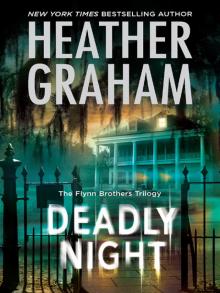 Deadly Night
Deadly Night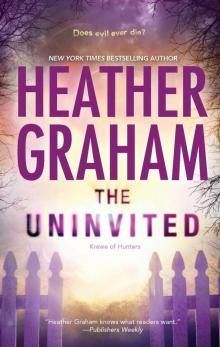 The Uninvited
The Uninvited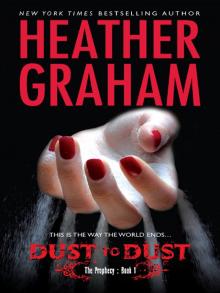 Dust to Dust
Dust to Dust Heart of Evil
Heart of Evil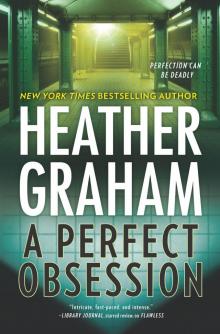 A Perfect Obsession
A Perfect Obsession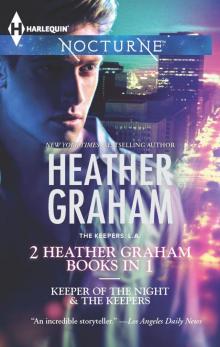 The Keepers
The Keepers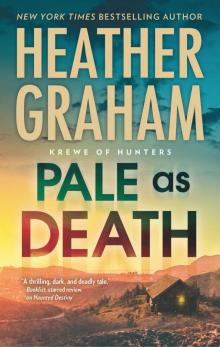 Pale as Death
Pale as Death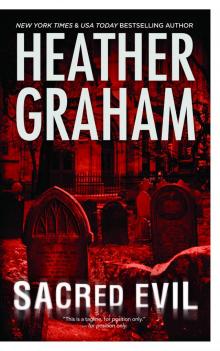 Phantom Evil
Phantom Evil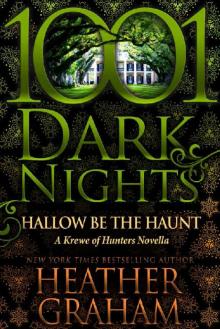 Hallow Be the Haunt
Hallow Be the Haunt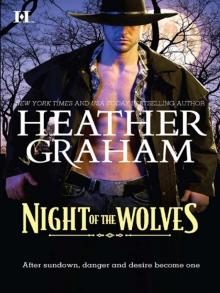 Night of the Wolves
Night of the Wolves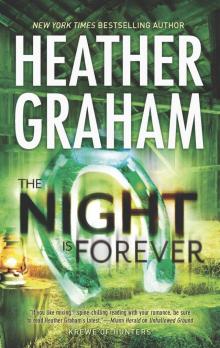 The Night Is Forever
The Night Is Forever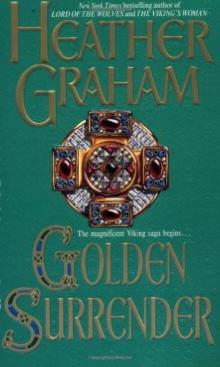 Golden Surrender
Golden Surrender Kiss of Darkness
Kiss of Darkness Beneath a Blood Red Moon
Beneath a Blood Red Moon A Dangerous Game
A Dangerous Game Ghost Shadow
Ghost Shadow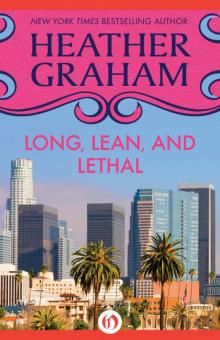 Long, Lean, and Lethal
Long, Lean, and Lethal Fade to Black
Fade to Black The Rising
The Rising And One Wore Gray
And One Wore Gray Rebel
Rebel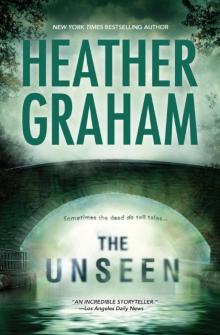 The Unseen
The Unseen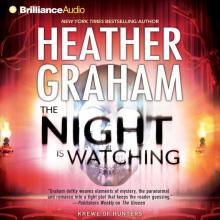 The Night Is Watching
The Night Is Watching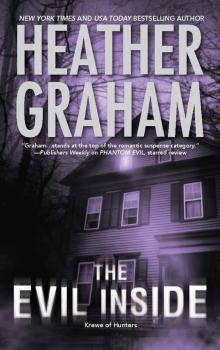 The Evil Inside
The Evil Inside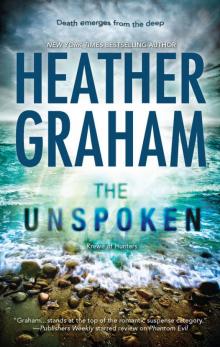 The Unspoken
The Unspoken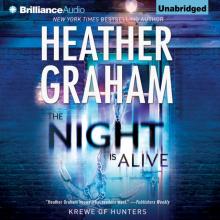 The Night Is Alive
The Night Is Alive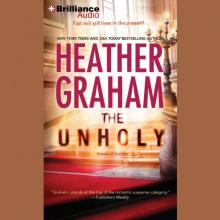 The Unholy
The Unholy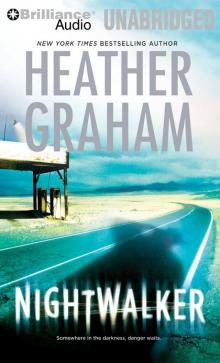 Nightwalker
Nightwalker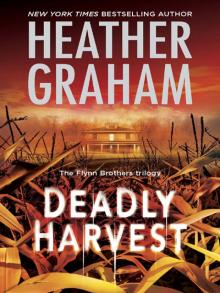 Deadly Harvest
Deadly Harvest An Angel for Christmas
An Angel for Christmas A Pirate's Pleasure
A Pirate's Pleasure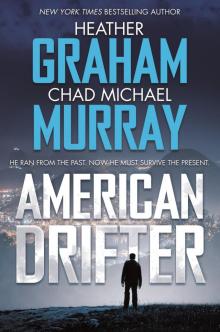 American Drifter
American Drifter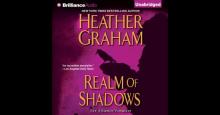 Realm of Shadows
Realm of Shadows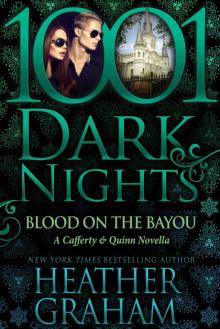 Blood on the Bayou
Blood on the Bayou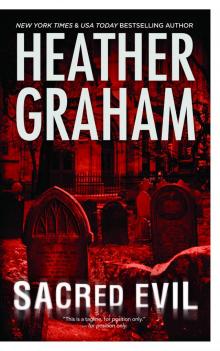 Sacred Evil
Sacred Evil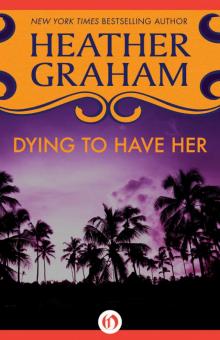 Dying to Have Her
Dying to Have Her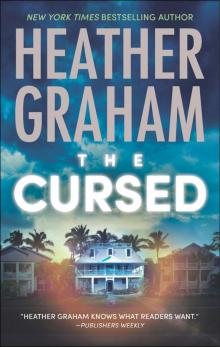 The Cursed
The Cursed Captive
Captive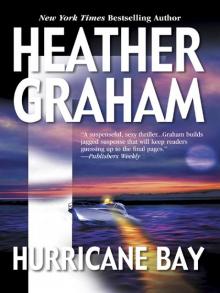 Hurricane Bay
Hurricane Bay Drop Dead Gorgeous
Drop Dead Gorgeous Ghost Memories
Ghost Memories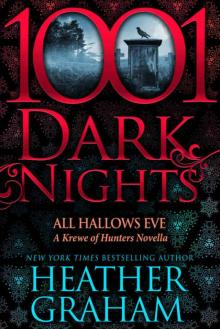 All Hallows Eve
All Hallows Eve Dying Breath
Dying Breath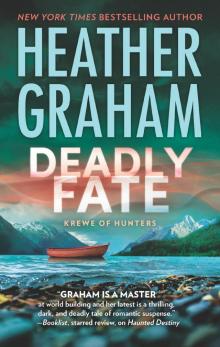 Deadly Fate
Deadly Fate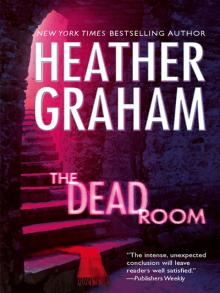 The Dead Room
The Dead Room Lord of the Wolves
Lord of the Wolves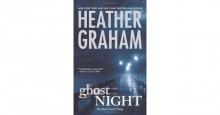 Ghost Night
Ghost Night Ghost Walk
Ghost Walk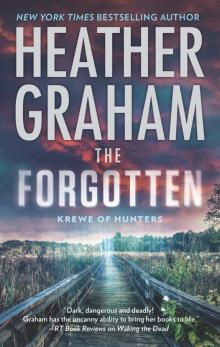 The Forgotten
The Forgotten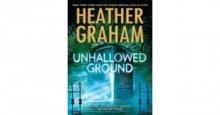 Unhallowed Ground
Unhallowed Ground One Wore Blue
One Wore Blue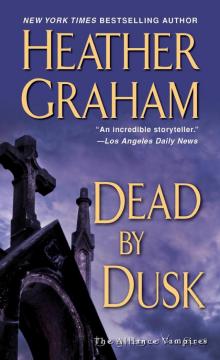 Dead By Dusk
Dead By Dusk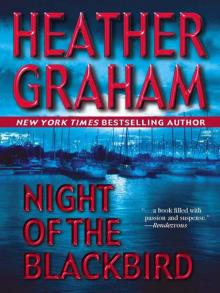 Night of the Blackbird
Night of the Blackbird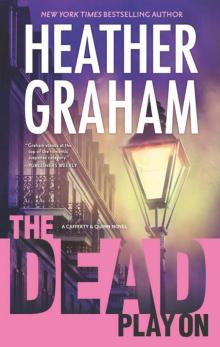 The Dead Play On
The Dead Play On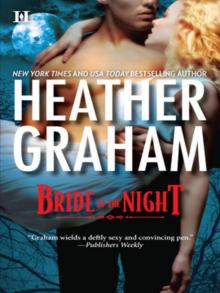 Bride of the Night
Bride of the Night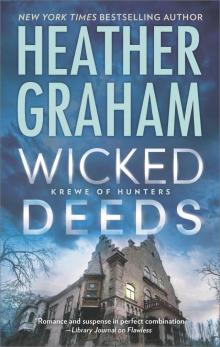 Wicked Deeds
Wicked Deeds The Forbidden
The Forbidden Triumph
Triumph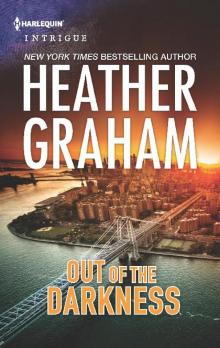 Out of the Darkness
Out of the Darkness Love Not a Rebel
Love Not a Rebel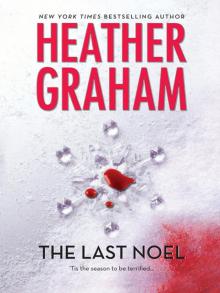 The Last Noel
The Last Noel Tall, Dark, and Deadly
Tall, Dark, and Deadly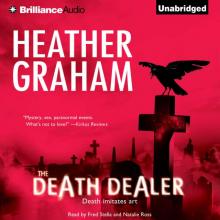 The Death Dealer
The Death Dealer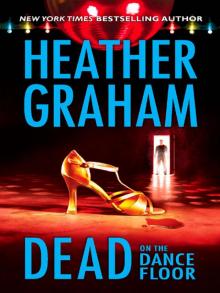 Dead on the Dance Floor
Dead on the Dance Floor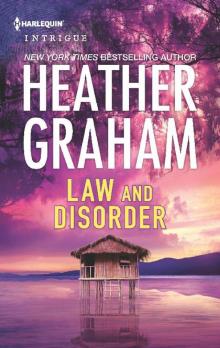 Law and Disorder
Law and Disorder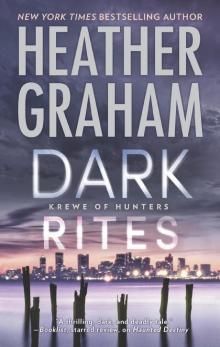 Dark Rites
Dark Rites New Year's Eve
New Year's Eve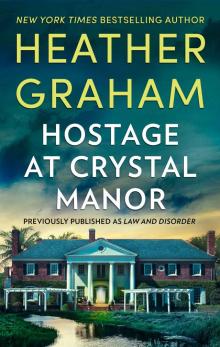 Hostage At Crystal Manor
Hostage At Crystal Manor And One Rode West
And One Rode West Home in Time for Christmas
Home in Time for Christmas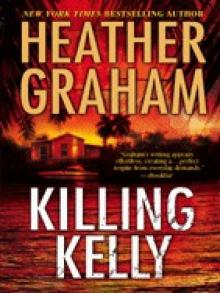 Killing Kelly
Killing Kelly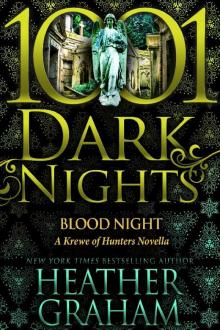 Blood Night
Blood Night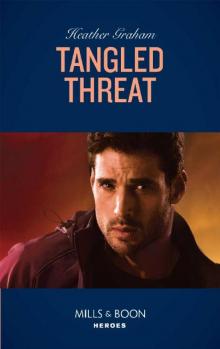 Tangled Threat (Mills & Boon Heroes)
Tangled Threat (Mills & Boon Heroes)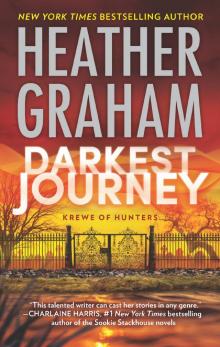 Darkest Journey
Darkest Journey Glory
Glory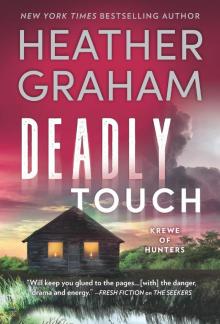 Deadly Touch
Deadly Touch An Unexpected Guest
An Unexpected Guest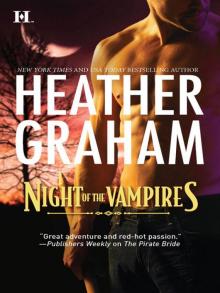 Night of the Vampires
Night of the Vampires Seize the Wind
Seize the Wind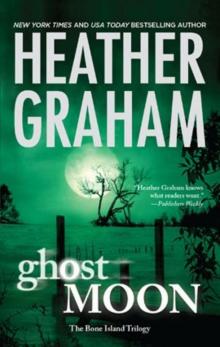 Ghost Moon
Ghost Moon The Vision
The Vision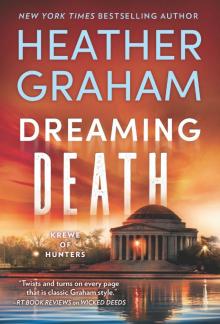 Dreaming Death
Dreaming Death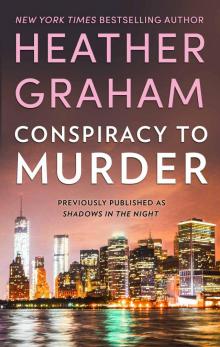 Conspiracy to Murder
Conspiracy to Murder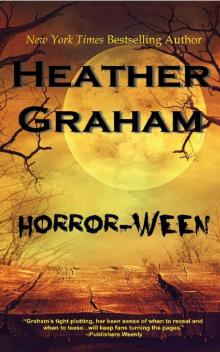 Horror-Ween (Krewe of Hunters)
Horror-Ween (Krewe of Hunters)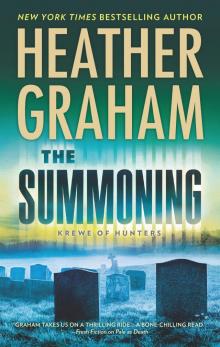 The Summoning
The Summoning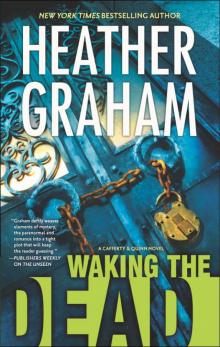 Waking the Dead
Waking the Dead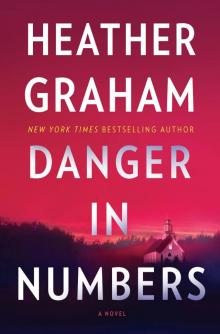 Danger in Numbers
Danger in Numbers The Hidden
The Hidden Sweet Savage Eden
Sweet Savage Eden Tangled Threat ; Suspicious
Tangled Threat ; Suspicious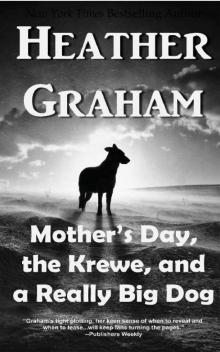 Mother's Day, the Krewe, and a Really Big Dog
Mother's Day, the Krewe, and a Really Big Dog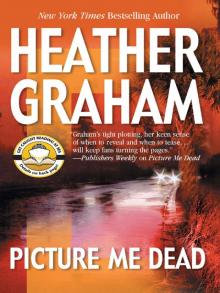 Picture Me Dead
Picture Me Dead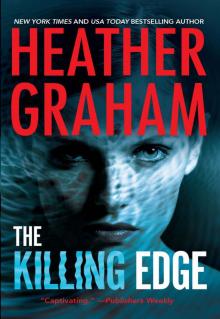 The Killing Edge
The Killing Edge St. Patrick's Day
St. Patrick's Day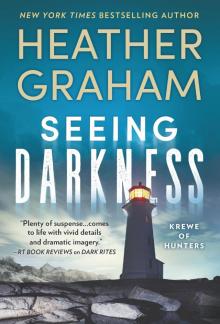 Seeing Darkness
Seeing Darkness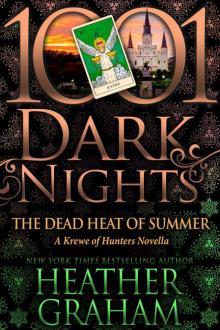 The Dead Heat of Summer: A Krewe of Hunters Novella
The Dead Heat of Summer: A Krewe of Hunters Novella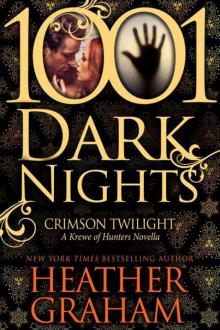 Crimson Twilight
Crimson Twilight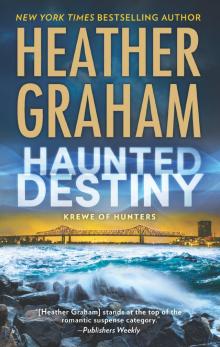 Haunted Destiny
Haunted Destiny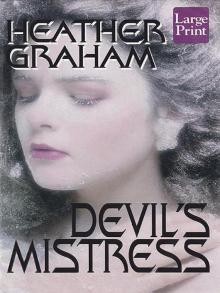 Devil's Mistress
Devil's Mistress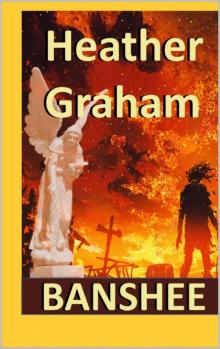 Banshee
Banshee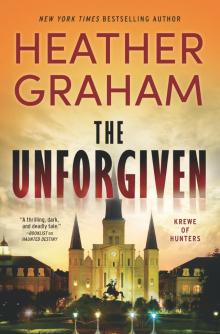 The Unforgiven
The Unforgiven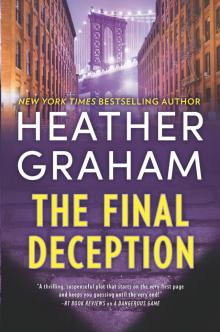 The Final Deception
The Final Deception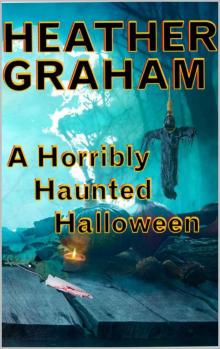 A Horribly Haunted Halloween
A Horribly Haunted Halloween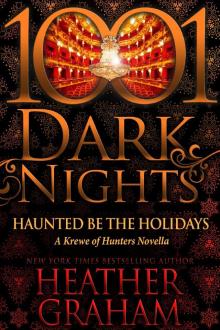 Haunted Be the Holidays
Haunted Be the Holidays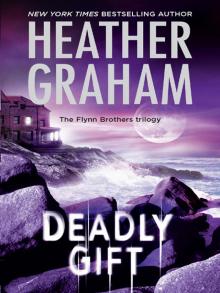 Deadly Gift
Deadly Gift Easter, the Krewe and Another Large White Rabbit
Easter, the Krewe and Another Large White Rabbit Haunted
Haunted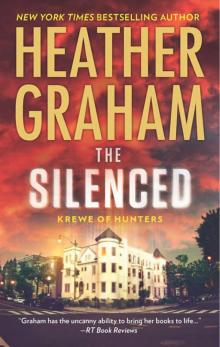 The Silenced
The Silenced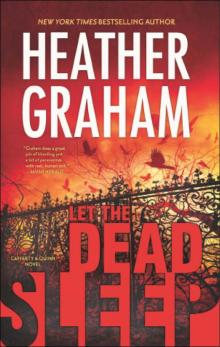 Let the Dead Sleep
Let the Dead Sleep Christmas, the Krewe, and Kenneth
Christmas, the Krewe, and Kenneth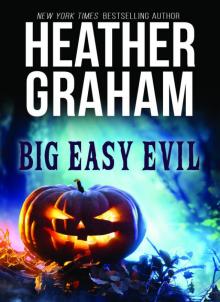 Big Easy Evil
Big Easy Evil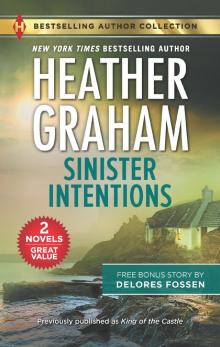 Sinister Intentions & Confiscated Conception
Sinister Intentions & Confiscated Conception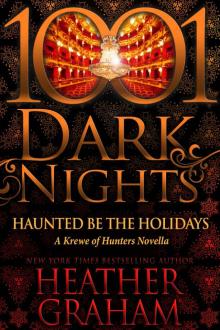 Haunted Be the Holidays: A Krewe of Hunters Novella
Haunted Be the Holidays: A Krewe of Hunters Novella Blood Red
Blood Red A Perilous Eden
A Perilous Eden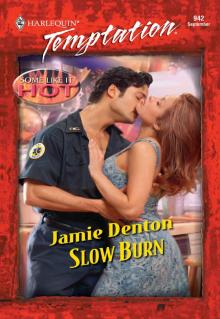 Slow Burn
Slow Burn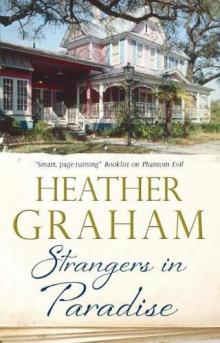 Strangers In Paradise
Strangers In Paradise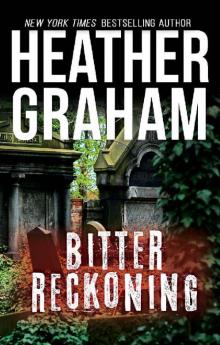 Bitter Reckoning
Bitter Reckoning Krewe of Hunters, Volume 1: Phantom Evil ; Heart of Evil ; Sacred Evil ; The Evil Inside
Krewe of Hunters, Volume 1: Phantom Evil ; Heart of Evil ; Sacred Evil ; The Evil Inside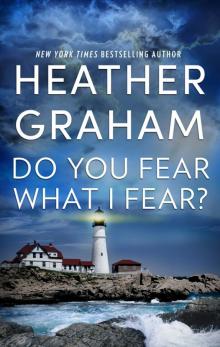 Do You Fear What I Fear?
Do You Fear What I Fear?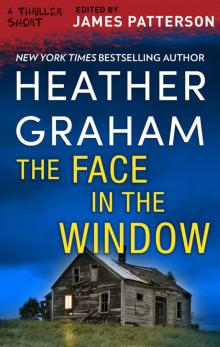 The Face in the Window
The Face in the Window Krewe of Hunters, Volume 3: The Night Is WatchingThe Night Is AliveThe Night Is Forever
Krewe of Hunters, Volume 3: The Night Is WatchingThe Night Is AliveThe Night Is Forever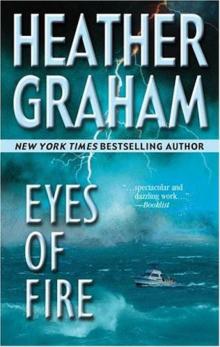 Eyes of Fire
Eyes of Fire Apache Summer sb-3
Apache Summer sb-3 Sensuous Angel
Sensuous Angel In the Dark
In the Dark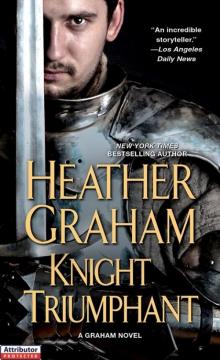 Knight Triumphant
Knight Triumphant Hours to Cherish
Hours to Cherish Tender Deception
Tender Deception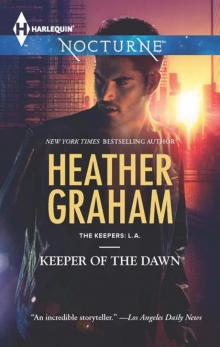 Keeper of the Dawn tkl-4
Keeper of the Dawn tkl-4 Apache Summer
Apache Summer Between Roc and a Hard Place
Between Roc and a Hard Place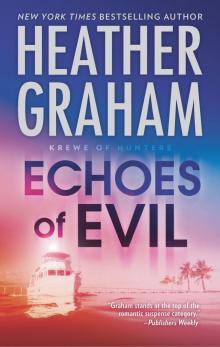 Echoes of Evil
Echoes of Evil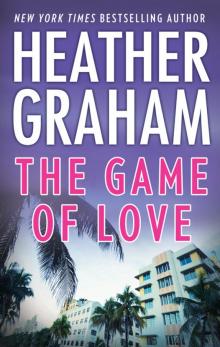 The Game of Love
The Game of Love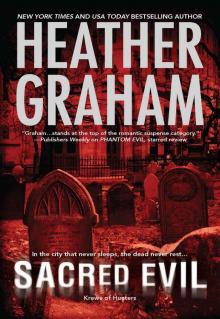 Sacred Evil (Krewe of Hunters)
Sacred Evil (Krewe of Hunters) Bougainvillea
Bougainvillea Tender Taming
Tender Taming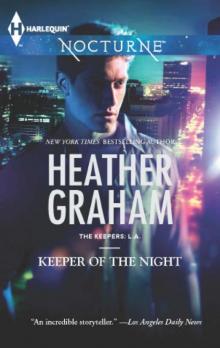 Keeper of the Night (The Keepers: L.A.)
Keeper of the Night (The Keepers: L.A.)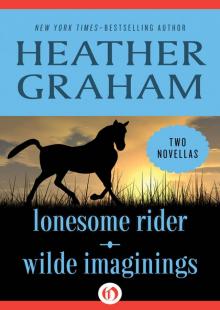 Lonesome Rider and Wilde Imaginings
Lonesome Rider and Wilde Imaginings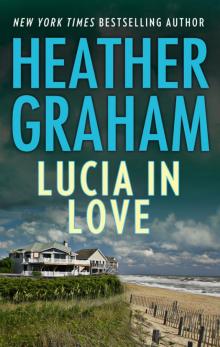 Lucia in Love
Lucia in Love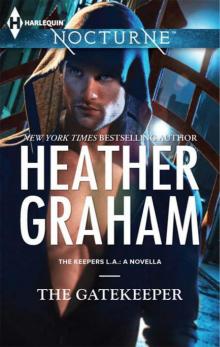 The Gatekeeper
The Gatekeeper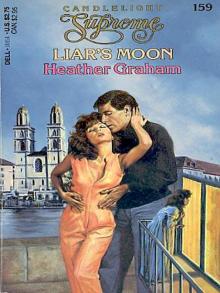 Liar's Moon
Liar's Moon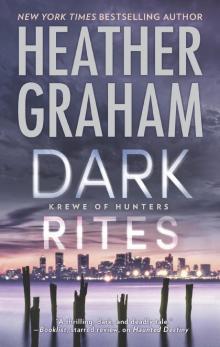 Dark Rites--A Paranormal Romance Novel
Dark Rites--A Paranormal Romance Novel A Season for Love
A Season for Love Krewe of Hunters, Volume 6: Haunted Destiny ; Deadly Fate ; Darkest Journey
Krewe of Hunters, Volume 6: Haunted Destiny ; Deadly Fate ; Darkest Journey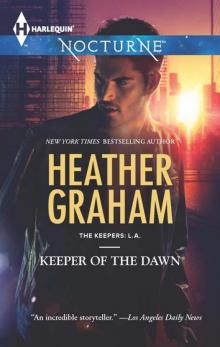 Keeper of the Dawn (The Keepers: L.A.)
Keeper of the Dawn (The Keepers: L.A.)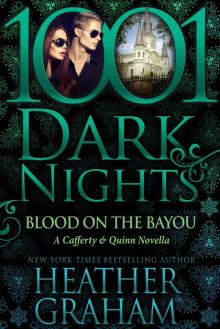 Blood on the Bayou: A Cafferty & Quinn Novella
Blood on the Bayou: A Cafferty & Quinn Novella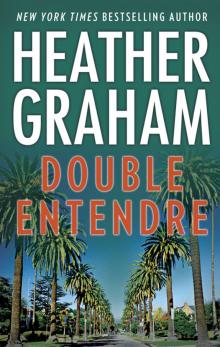 Double Entendre
Double Entendre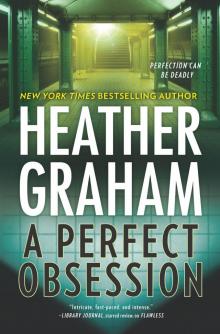 A Perfect Obsession--A Novel of Romantic Suspense
A Perfect Obsession--A Novel of Romantic Suspense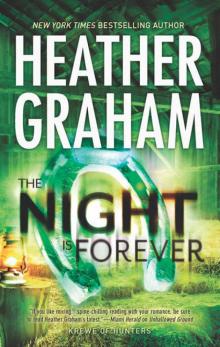 The Night Is Forever koh-11
The Night Is Forever koh-11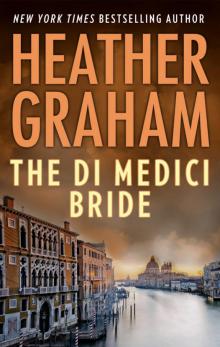 The Di Medici Bride
The Di Medici Bride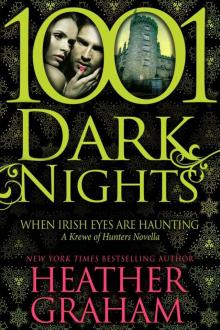 When Irish Eyes Are Haunting: A Krewe of Hunters Novella
When Irish Eyes Are Haunting: A Krewe of Hunters Novella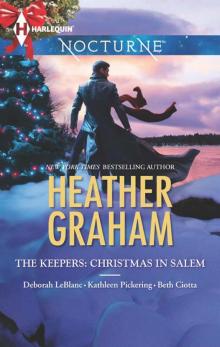 The Keepers: Christmas in Salem: Do You Fear What I Fear?The Fright Before ChristmasUnholy NightStalking in a Winter Wonderland (Harlequin Nocturne)
The Keepers: Christmas in Salem: Do You Fear What I Fear?The Fright Before ChristmasUnholy NightStalking in a Winter Wonderland (Harlequin Nocturne)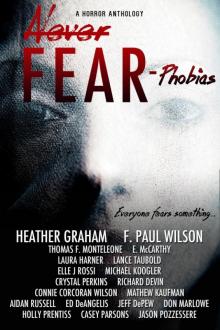 Never Fear
Never Fear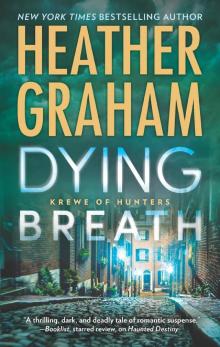 Dying Breath--A Heart-Stopping Novel of Paranormal Romantic Suspense
Dying Breath--A Heart-Stopping Novel of Paranormal Romantic Suspense If Looks Could Kill
If Looks Could Kill This Rough Magic
This Rough Magic Heather Graham's Christmas Treasures
Heather Graham's Christmas Treasures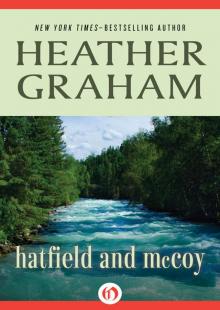 Hatfield and McCoy
Hatfield and McCoy The Trouble with Andrew
The Trouble with Andrew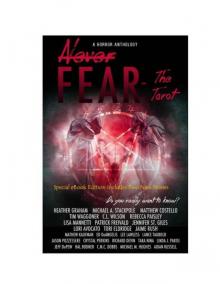 Never Fear - The Tarot: Do You Really Want To Know?
Never Fear - The Tarot: Do You Really Want To Know?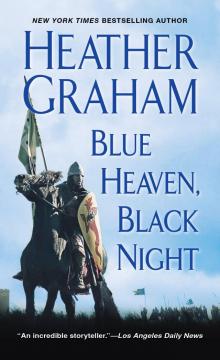 Blue Heaven, Black Night
Blue Heaven, Black Night Forbidden Fire
Forbidden Fire Come the Morning
Come the Morning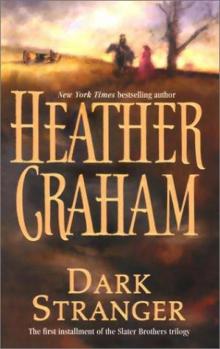 Dark Stranger sb-4
Dark Stranger sb-4 Lie Down in Roses
Lie Down in Roses Red Midnight
Red Midnight Krewe of Hunters Series, Volume 5
Krewe of Hunters Series, Volume 5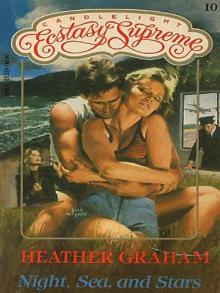 Night, Sea, And Stars
Night, Sea, And Stars Snowfire
Snowfire Quiet Walks the Tiger
Quiet Walks the Tiger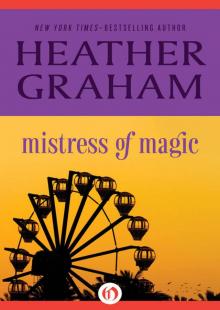 Mistress of Magic
Mistress of Magic For All of Her Life
For All of Her Life Runaway
Runaway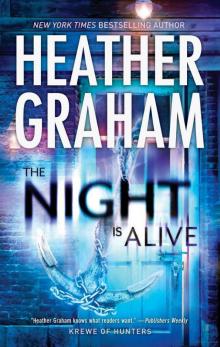 The Night Is Alive koh-10
The Night Is Alive koh-10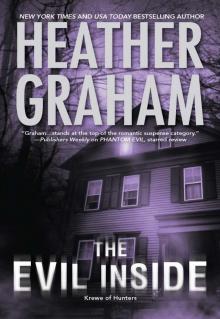 The Evil Inside (Krewe of Hunters)
The Evil Inside (Krewe of Hunters)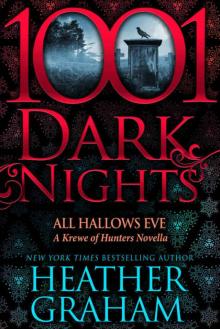 All Hallows Eve: A Krewe of Hunters Novella (1001 Dark Nights)
All Hallows Eve: A Krewe of Hunters Novella (1001 Dark Nights) Tomorrow the Glory
Tomorrow the Glory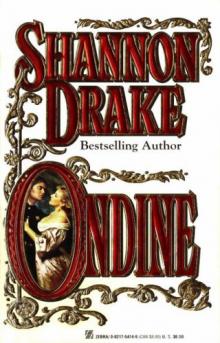 Ondine
Ondine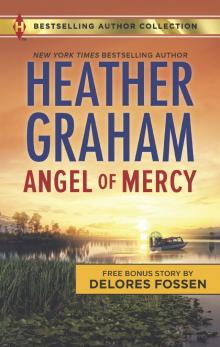 Angel of Mercy & Standoff at Mustang Ridge
Angel of Mercy & Standoff at Mustang Ridge Bride of the Tiger
Bride of the Tiger When Next We Love
When Next We Love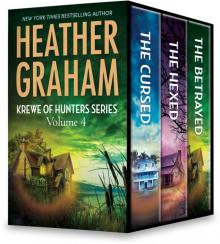 Heather Graham Krewe of Hunters Series, Volume 4
Heather Graham Krewe of Hunters Series, Volume 4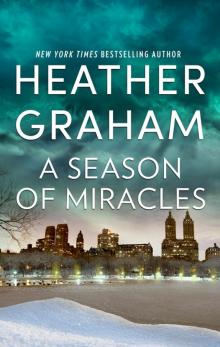 A Season of Miracles
A Season of Miracles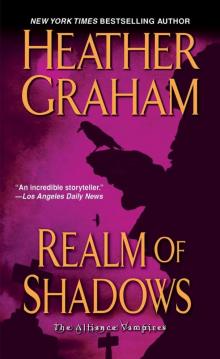 Realm of Shadows (Vampire Alliance)
Realm of Shadows (Vampire Alliance)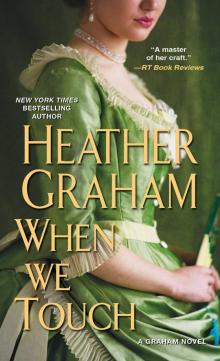 When We Touch
When We Touch Serena's Magic
Serena's Magic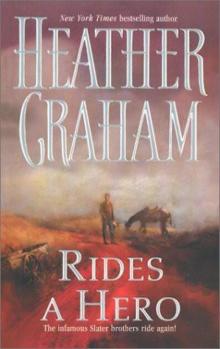 Rides a Hero sb-2
Rides a Hero sb-2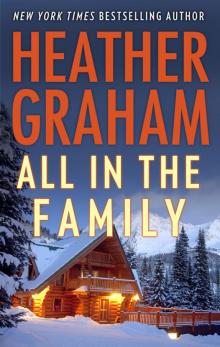 All in the Family
All in the Family Handful of Dreams
Handful of Dreams A Stranger in the Hamptons
A Stranger in the Hamptons Krewe of Hunters, Volume 2: The Unseen ; The Unholy ; The Unspoken ; The Uninvited
Krewe of Hunters, Volume 2: The Unseen ; The Unholy ; The Unspoken ; The Uninvited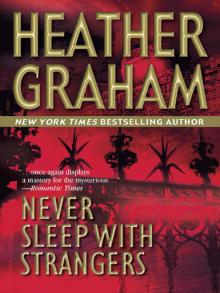 Never Sleep With Strangers
Never Sleep With Strangers Eden's Spell
Eden's Spell A Magical Christmas
A Magical Christmas Forever My Love
Forever My Love King of the Castle
King of the Castle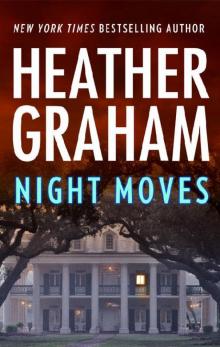 Night Moves (60th Anniversary)
Night Moves (60th Anniversary) The Island
The Island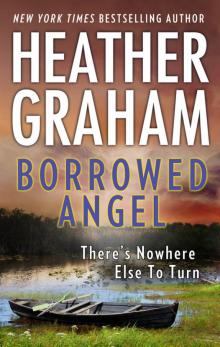 Borrowed Angel
Borrowed Angel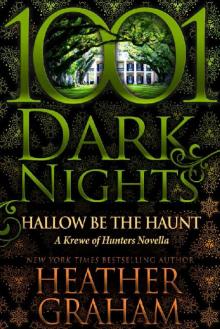 Hallow Be the Haunt: A Krewe of Hunters Novella
Hallow Be the Haunt: A Krewe of Hunters Novella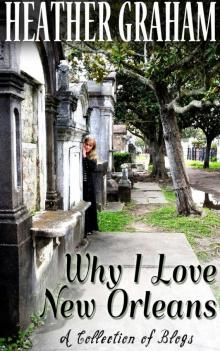 Why I Love New Orleans
Why I Love New Orleans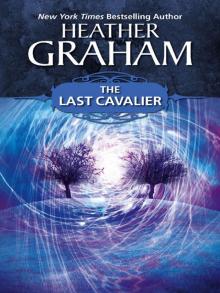 The Last Cavalier
The Last Cavalier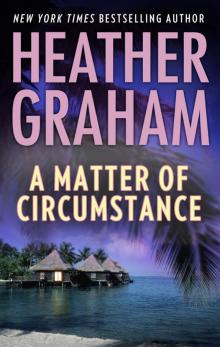 A Matter of Circumstance
A Matter of Circumstance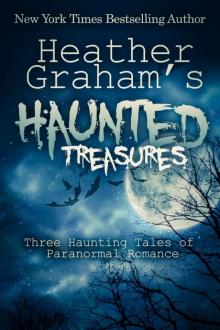 Heather Graham's Haunted Treasures
Heather Graham's Haunted Treasures Tempestuous Eden
Tempestuous Eden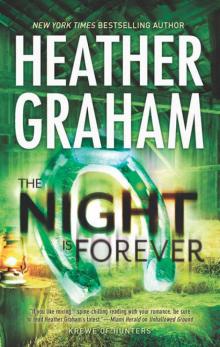 Krewe 11 - The Night Is Forever
Krewe 11 - The Night Is Forever